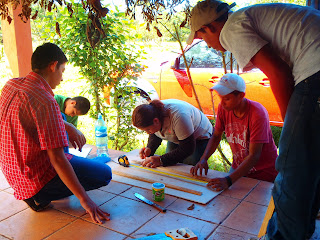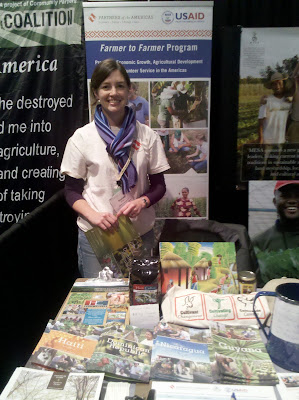Excerpts from the Travel Log of a Haiti FTF Volunteer

Robert Spencer, Alabama Cooperative Extension staff and Farmer to Farmer volunteer currently in Haiti, sent us some comments for the blog! Below are some excerpts with some highlights from his trip so far: During my past discussions with other Farmer to Farmer (FTF) colleagues, and based upon my visits to many rabbit and small animal farms, I have come of the opinion that my role as an educator is currently best served by helping the target audiences better understand the essentials and benefits of proper animal care as it relates to productivity. Producer in Sibert shows her production practices February 18: I arrived in Port Aux Prince, Haiti late Sat. afternoon, embraced by warm temperatures which were a welcome relief after leaving temps of 50 degrees back in North Alabama. ... all five of us [FTF volunteers and field staff] then headed to an exploratory meeting with the Haiti Chapter of Partners of the Americas. This initial meeting involved finding out what project...




